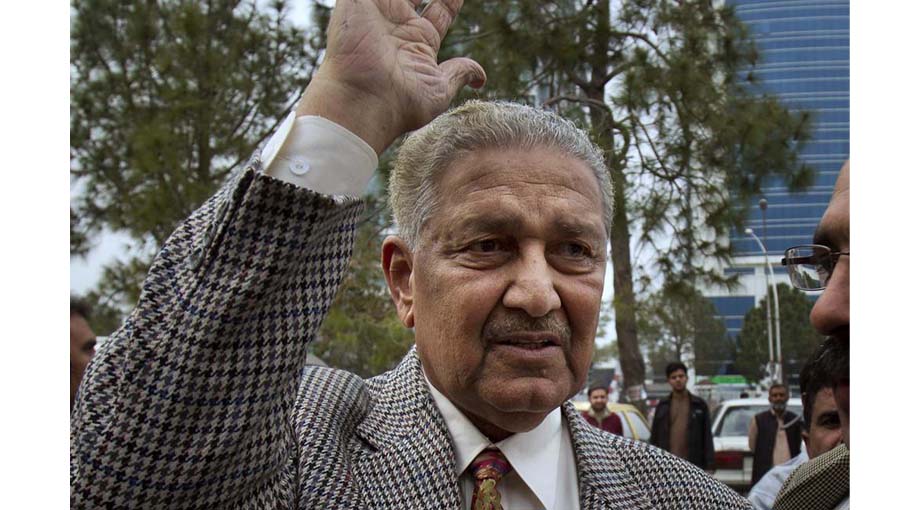Controversial father of Pakistan nuclear bomb passes away at 85

Abdul Qadeer Khan, a controversial figure known as the father of Pakistan’s nuclear bomb, died Sunday after a lengthy illness, the country’s interior minister said. He was 85.
Khan launched Pakistan on the path to becoming a nuclear weapons power in the early 1970s. Interior Minister Sheikh Rasheed Ahmad said he died in a hospital Islamabad. He did not elaborate.
Khan was mired in controversy that began even before he returned to Pakistan from the Netherlands in the 1970s, where he had worked at a nuclear research facility.
He was later accused of stealing the centrifuge uranium enrichment technology from the Netherlands facility that he would later use to develop Pakistan’s first nuclear weapon, according to research done by the Carnegie Endowment for International Peace.
Khan, who held a doctorate in metallurgical engineering from the Catholic University of Leuven in Belgium, offered to launch Pakistan’s nuclear weapons program in 1974 after neighbor India conducted its first “peaceful nuclear explosion.”
He reached out to then-Prime Minister Zulfikar Ali Bhutto offering technology for Pakistan’s own nuclear weapons program. Still smarting from the 1971 loss of East Pakistan, which became Bangladesh, as well as the capture of 90,000 Pakistani soldiers by India, Bhutto embraced the offer. He famously said: “We (Pakistanis) will eat grass, even go hungry, but we will have our own (nuclear bomb).”
Since then, Pakistan has relentlessly pursued its nuclear weapons program in tandem with India. Both are declared nuclear weapons states after they conducted tit-for-tat nuclear weapons tests in 1998.
Pakistan’s nuclear program and Khan’s involvement have long been the subject of allegations and criticism.
Khan was accused by the US of trading nuclear secrets to neighbor Iran and to North Korea in the 1990s after Washington sanctioned Pakistan for its nuclear weapons program. For 10 years during the Soviet occupation of neighboring Afghanistan, successive US presidents certified Pakistan was not developing nuclear weapons. The certification was necessary under American law to allow US aid to anti-communist rebels through Pakistan.
However, in 1990, just months after the 1989 withdrawal of Soviet troops from Afghanistan, Washington slapped Pakistan with crippling sanctions ending all aid to the country, including military and humanitarian.



